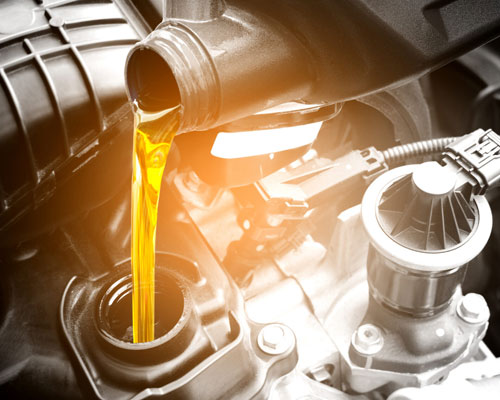Every vehicle owner understands the importance of regular maintenance, but one aspect that often goes unnoticed is the role of automotive lubricants in ensuring long-term performance and reliability. Whether you own a compact car for city driving or a heavy-duty vehicle for long hauls, the right lubrication practices can make the difference between smooth performance and costly breakdowns. With the right approach, you can protect the engine, extend its lifespan, and enjoy a more efficient driving experience using the best automotive lubricants.
Why Lubrication Is the Heart of Engine Health
An engine is made up of hundreds of moving parts that generate intense heat and friction during operation. Without lubrication, these components would wear out rapidly, leading to inefficiency, breakdowns, or complete engine failure. High-quality lubricants serve as a protective barrier, reducing friction and cooling the engine.
For sellers and drivers alike, recognizing this fundamental role helps highlight why investing in the right lubricant is not just an option but a necessity. Proper lubrication translates to smoother rides, lower maintenance costs, and fewer repair headaches.
The Role of Automotive Lubricants in Performance
Lubricants do far more than reduce friction. They act as multifunctional protectors inside the engine. Some of their key roles include:
Cooling the Engine
Engines generate heat when running, and lubricants help disperse this heat away from critical components. By doing so, they prevent overheating, which could otherwise cause serious damage.
Cleaning Internal Parts
Dust, debris, and combustion by-products accumulate inside engines over time. Lubricants contain detergents and dispersants that help remove these particles, ensuring that dirt does not settle and clog the system.
Preventing Corrosion
Engines are exposed to moisture and combustion gases that can corrode metal surfaces. Quality lubricants protect engine parts by forming a thin film that reduces the risk of rust and chemical wear.
Enhancing Efficiency
Less friction means the engine runs more smoothly and requires less fuel to operate. This directly contributes to better fuel economy and reduced emissions.
Choosing the Right Lubricant
Not all lubricants are created equal. Selecting the correct one for your engine is critical. Factors such as viscosity, additive composition, and compatibility with your engine design determine whether the lubricant will perform effectively.
Viscosity Matters
Viscosity refers to the thickness of the lubricant. An oil that is too thick may not circulate properly in cold conditions, while one that is too thin may fail to provide adequate protection at high temperatures. Manufacturers usually recommend specific viscosity grades for different vehicles, and following these guidelines ensures optimal performance.
Additives That Make a Difference
Modern lubricants come with a wide range of additives designed to improve performance. These may include anti-wear agents, antioxidants, and detergents. Each additive plays a unique role in ensuring engine longevity and efficiency.
Synthetic vs. Mineral Oils
While mineral oils are derived directly from crude oil, synthetic oils are engineered for better stability and performance. Synthetic oils generally perform better in extreme conditions, making them a popular choice for those looking to maximize engine performance.
Expert Tips to Maximize Engine Performance
Sellers and drivers can both benefit from a few expert strategies to ensure that lubricants deliver their maximum potential.
1. Follow Manufacturer Recommendations
Every engine is designed with specific needs in mind. Always check the vehicle manual for the recommended lubricant grade and specifications. Ignoring these can lead to poor performance and even void warranties.
2. Regular Oil Changes
Even the best lubricants degrade over time due to heat, friction, and contamination. Changing oil at the recommended intervals prevents sludge buildup and ensures continuous protection.
3. Monitor Oil Levels
Low oil levels put immense strain on the engine and increase the chances of damage. Regularly checking the oil dipstick ensures that the lubricant level stays within the safe range.
4. Pay Attention to Driving Conditions
If you frequently drive in extreme conditions—such as high heat, dusty environments, or stop-and-go traffic—you may need more frequent oil changes. Tailoring maintenance practices to driving conditions ensures consistent performance.
5. Avoid Mixing Oils
Mixing different lubricant types may compromise performance and reduce protection. Always stick with one type unless a mechanic specifically recommends otherwise.
6. Invest in High-Quality Filters
Oil filters trap debris and contaminants that could otherwise damage the engine. Replacing filters at regular intervals is just as important as changing the oil itself.
The Link Between Lubricants and Fuel Economy
One of the most overlooked benefits of proper lubrication is improved fuel efficiency. By reducing friction inside the engine, lubricants allow the vehicle to operate more smoothly and use fuel more effectively. Over time, this translates into significant savings, especially for those who drive long distances or operate commercial fleets.
Additionally, efficient fuel use contributes to lower emissions, making the vehicle more environmentally friendly. This dual advantage highlights how proper lubrication benefits both your wallet and the planet.
Extending Engine Lifespan
A well-maintained engine can serve its owner for decades, and lubricants are at the center of this longevity. By protecting against wear, corrosion, and overheating, lubricants ensure that engines maintain their strength even under demanding conditions. This long-term protection helps sellers highlight the value of their vehicles when it comes time to sell or trade them.
Signs Your Lubricant Needs Attention
Ignoring warning signs can cost owners dearly. Some common indicators that your lubricant may no longer be effective include:
- Unusual engine noises such as knocking or grinding
- Excessive smoke from the exhaust
- Overheating despite regular coolant levels
- Dark, thick, or sludgy oil on the dipstick
Recognizing these signs early allows drivers to take corrective measures before severe damage occurs.
Why Sellers Should Care
For those selling vehicles, maintaining a strong service history is vital. Buyers are more confident when they see consistent oil changes with high-quality lubricants. It reassures them that the vehicle has been well cared for, which can significantly boost resale value. Highlighting the use of trusted lubricants can also give sellers an edge in competitive markets.
Conclusion
Maximizing engine performance goes hand in hand with choosing and maintaining the right lubricants. They reduce friction, protect against wear, improve efficiency, and extend the lifespan of your vehicle. By following expert tips—such as using manufacturer-recommended grades, sticking to regular oil changes, and investing in quality filters—owners can unlock the full potential of their engines.
Whether you’re driving daily in urban settings or pushing your vehicle to its limits on longer journeys, understanding the importance of lubrication ensures you get the best performance while saving money on repairs and fuel. A well-lubricated engine isn’t just a smoother ride; it’s a smarter investment in long-term reliability.



